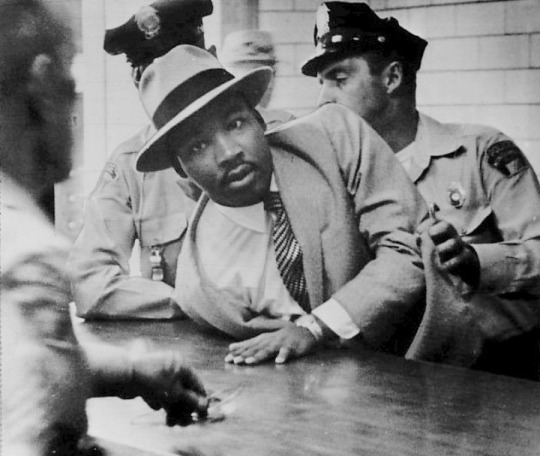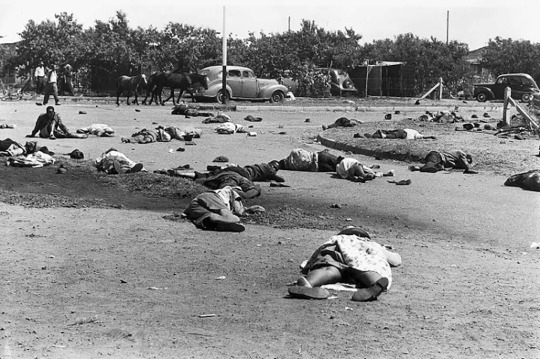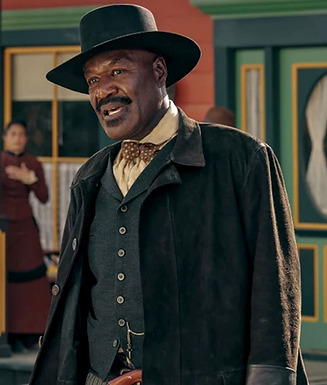#blackhistoryfacts
Text

Martin Luther King Jr. was Arrested 29 times for these so-called crimes. Here are just a few occasions when he was arrested and why:
January 26, 1956 — He was arrested in Montgomery, Alabama as part of a "Get Tough" campaign to intimidate the bus boycotters. Four days later, on January 30, his home was bombed.
March 22, 1956 — King, Rosa Parks and more than 100 others were arrested on charges of organizing the Montgomery Bus Boycott in protest of Parks' treatment.
September 3, 1958 — While attempting to attend the arraignment of a man accused of assaulting Abernathy, King is arrested outside Montgomery's Recorder's Court and charged with loitering. He is released a short time later on $100 bond.
September 5, 1958 — King was convicted of disobeying a police order and fined $14. He chooses to spend 14 days in jail, but is soon released when Police Commissioner Clyde Sellers pays his fine.
October 19, 1960 — He was arrested in Atlanta, Georgia during a sit-in while waiting to be served at a restaurant. He was sentenced to four months in jail, but after intervention by then presidential candidate John Kennedy and his brother Robert Kennedy, he was released.
May 4, 1961 — He was arrested in Albany, Georgia for obstructing the sidewalk and parading without a permit.
April 12, 1963 — He and Ralph Abernathy were arrested in Birmingham, Alabama for demonstrating without a permit.
During his time in jail, he he wrote what is now known as his historic "Letter from Birmingham Jail."
June 11, 1964 — He was arrested for protesting for the integration of public accommodations in St. Augustine, Florida.
February 2, 1965 — He was arrested in Selma, Alabama during a voting rights demonstration, but the demonstrations continued leading to demonstrators being beaten at the Pettus Bridge by state highway patrolmen and sheriff's deputies.
Legendary civil rights activist Dr. Martin Luther King Jr. spent a night in the jail on a trespassing charge after he and others were arrested after they attempted to eat in the Monson Restaurant on June 11, 1964. The arrest was reported in The St. Augustine Record and is included in the state legislative committee's investigative report, "Racial & Civil Disorders in St. Augustine," February 1965.
•••
Martin Luther King Jr. fue arrestado 29 veces por estos supuestos “crímenes”. Estas son sólo algunas ocasiones en las que fue arrestado y el por qué:
26 de enero de 1956: Fue arrestado en Montgomery, Alabama, como parte de una campaña "Get Tough (Ponerse Firme)" para intimidar a los boicoteadores de autobuses. Cuatro días después, el 30 de enero, su casa fue bombardeada.
22 de marzo de 1956: King, Rosa Parks y más de 100 personas más fueron arrestados acusados de organizar el boicot a los autobuses de Montgomery. Esto en protesta por el trato que recibió Parks.
3 de septiembre de 1958: Mientras intentaba asistir a la lectura de cargos de un hombre acusado de agredir a Abernathy, King es arrestado frente al Tribunal de Registro de Montgomery y acusado de holgazanería. Poco tiempo después fue liberado, luego de pagar una fianza de 100 dólares.
5 de septiembre de 1958: King fue declarado culpable de desobedecer una orden policial y multado con 14 dólares. Eligió pasar 14 días en la cárcel, pero pronto lo liberan luego de que el comisionado de policía Clyde Sellers pagara la multa.
19 de octubre de 1960: Fue arrestado en Atlanta, Georgia, durante una sentada mientras esperaba que lo atendieran en un restaurante. Fue sentenciado a cuatro meses de cárcel, pero tras la intervención del entonces candidato presidencial John Kennedy y su hermano Robert Kennedy, fue puesto en libertad.
4 de mayo de 1961: Fue arrestado en Albany, Georgia, por obstruir la acera y desfilar sin permiso.
12 de abril de 1963: Él y Ralph Abernathy fueron arrestados en Birmingham, Alabama, por realizar una protesta sin permiso.
Durante su estancia en la cárcel, escribió lo que ahora se conoce como su histórica "Carta desde la cárcel de Birmingham".
11 de junio de 1964: Fue arrestado por protestar por la integración de alojamientos públicos en St. Augustine, Florida.
2 de febrero de 1965: Fue arrestado en Selma, Alabama, durante una protesta por el derecho al voto, pero las protestas continuaron y los protestantes fueron golpeados en el puente Pettus por patrulleros de carreteras estatales y agentes del sheriff.
El legendario activista de derechos civiles, Dr. Martin Luther King Jr., pasó una noche en la cárcel acusado de invasión de propiedad privada después de que él y otros fueran arrestados después de intentar comer en el restaurante Monson el 11 de junio de 1964. El arresto fue informado en el periódico The St. Augustine Record y está incluido en el informe de investigación del comité legislativo estatal, "Desórdenes Civiles y Raciales en St. Augustine", febrero de 1965.
#martin luther king jr#martin luther king day#blacklivesmatter#blacklivesalwaysmatter#blackhistory#history#blackhistorymonth#blackpeoplematter#blackhistoryeveryday#blackhistory365#blackhistoryfacts#black history is everybody's history#black history is world history#black history is american history#historyfacts#black history matters#black history month#black history#knowyourhistory#no justice no peace#historical#justice#share#justice system#english#spanish#read#civil rights#civil rights movement#martin luther king quotes
121 notes
·
View notes
Photo

The Timeless Wisdom of African Sayings and Proverbs. 1.”Teeth do not see poverty”. Even when circumstances are dire, people still manage to find something to smile about. 2.”Only a fool tests the depth of a river with both feet”. Don’t leap into a situation without first thinking about the consequences. 3.”Do not look where you fell, but where you slipped”. Rather than dwelling on your mistake, look at what caused you to make the mistake. 4.”The best way to eat an elephant is to cut him up into little pieces”. The best way to solve a problem is to tackle it bit by bit, one step at a time. 5.”He who does not know one thing knows another”. No one can know everything but everyone knows something. 6.”Rain beats the leopards skin but it does not wash out the spots”. No matter how hard you try, you cannot change another person’s character. Similarly, if you behave badly and develop a poor reputation, it’s difficult to change other people’s opinions of you, regardless of how many good deeds you perform. 7.”No matter how hot your anger is, it cannot cook yams”. While anger can prompt a positive action that may resolve an issue, the act of getting angry resolves nothing. 8.”A roaring lion kills no game”. Sitting around and talking about something gains nothing. The saying also implies that you should work towards your goals quietly rather than bragging about your achievements prematurely 9.”Do not call the forest that shelters you a jungle”. Do not disrespect or insult someone who shares your burdens and responsibilities or who takes care of you. 10.”Rain does not fall on one roof alone”. Trouble does not discriminate. It comes to everyone at some point. 11.”Ears that do not listen to advice, accompany the head when it is chopped off”. A person who does not heed advice will suffer the consequences. 12.”Not everyone who chased the zebra caught it, but he who caught it, chased it”. To achieve a result one must put in effort. #blackhistory #knowthyself #blackhistory365 #blackhistoryfacts https://www.instagram.com/p/CnkZiqUDKCaKqlUt4S4vWH0IovnClTfoSvlDVU0/?igshid=NGJjMDIxMWI=
118 notes
·
View notes
Photo

This #BlackHistoryMonth, we’re honoring all black chemists for their groundbreaking work and contributions to the scientific field.
2 notes
·
View notes
Video
youtube
Max Robinson Breaking Barriers in Broad #blackhistoryfacts
0 notes
Text

Challenge: How Good Are You at Filmmaking https://www.blaqsbi.com/3BNK
0 notes
Photo

Looking to learn more about Black history beyond just the month of February? Check out our latest article, "Black History: More Than February." In this piece, we explore the importance of continuing to educate ourselves on the contributions and struggles of Black individuals throughout history, not just during the designated month. Join us in promoting greater awareness and appreciation of Black history by sharing this article and using the hashtags #BCOH #BlackCardsOfHistory #BlackHistory #BlackHistoryMonth #MoreThanFebruary #BlackHistoryEducation Together, we can work towards a more inclusive and equitable society by celebrating the contributions of Black individuals throughout the year. -_-_-_-_-_-_-_-_-_-_-_-_-_-_-_-_-_- #BHM #BlackExcellence #BlackCulture #BlackPower #BlackAchievement #BlackHistory365 #AfricanAmericanHistory #BlackHistoryFacts #BlackHistoryMatters #BlackLivesMatter #BusinessBlog #Article #Blog #BlogPost #NewPost #WritingCommunity #NonProfit #Organization #NonProfitOrganization #Entrepreneur (at Sunrise, Florida) https://www.instagram.com/p/CpvodAiOUcs/?igshid=NGJjMDIxMWI=
#bcoh#blackcardsofhistory#blackhistory#blackhistorymonth#morethanfebruary#blackhistoryeducation#bhm#blackexcellence#blackculture#blackpower#blackachievement#blackhistory365#africanamericanhistory#blackhistoryfacts#blackhistorymatters#blacklivesmatter#businessblog#article#blog#blogpost#newpost#writingcommunity#nonprofit#organization#nonprofitorganization#entrepreneur
1 note
·
View note
Photo

#onesownwill #motivation #motivationalquotes #inspiration #inspirationalquotes #quotes #dailyquotes #winstonchurchill #winstonchurchillquote #winstonchurchillquotes #winstonchurchillday #black #blackhistorymonth #blackhistory #blackhistoryfacts #blackhistory365 #blackhistoryeveryday https://www.instagram.com/p/CpO1KmKNLXQ/?igshid=NGJjMDIxMWI=
#onesownwill#motivation#motivationalquotes#inspiration#inspirationalquotes#quotes#dailyquotes#winstonchurchill#winstonchurchillquote#winstonchurchillquotes#winstonchurchillday#black#blackhistorymonth#blackhistory#blackhistoryfacts#blackhistory365#blackhistoryeveryday
1 note
·
View note
Photo

Never forget. This is our history. This is American History. #blackhistoryfacts https://www.instagram.com/p/CpAj7FjrSVP/?igshid=NGJjMDIxMWI=
0 notes
Photo

The magic is when we show up as who we KNOW we are!!!!!! Happy Black History Month. #gingerbeauty #gingerbeautyluxe #gingerrootspa #gingerbeautylux #blackhistoryfacts #blackhistorymonth #wearegolden #africanpeople #ourhistory #liveroyal https://www.instagram.com/p/Co_GX_aAtof/?igshid=NGJjMDIxMWI=
#gingerbeauty#gingerbeautyluxe#gingerrootspa#gingerbeautylux#blackhistoryfacts#blackhistorymonth#wearegolden#africanpeople#ourhistory#liveroyal
1 note
·
View note
Photo

Alexander Miles was inducted into the National Inventors Hall of Fame in 2007. . . . . . #GiveHistoryBackItsColor #blackicon #blackhistorymaker #blackinventors #blackhistorymakers #history #elevators #blackhistorymonth2023 #blackpower #blackhistory #blackhistoryfacts #fyp #blackhistoryeveryday #blacksuccess #blackexellence #blackhistorymatters #blackicons #inventor #inventions #blackhistoryisamericanhistory #black #blackhistorymatters #historylesson #historybuff #historymakers #learn #historyandshit #historylover #historydaily #instadaily #historybuffs https://www.instagram.com/p/Co5Z5KGv0gf/?igshid=NGJjMDIxMWI=
#givehistorybackitscolor#blackicon#blackhistorymaker#blackinventors#blackhistorymakers#history#elevators#blackhistorymonth2023#blackpower#blackhistory#blackhistoryfacts#fyp#blackhistoryeveryday#blacksuccess#blackexellence#blackhistorymatters#blackicons#inventor#inventions#blackhistoryisamericanhistory#black#historylesson#historybuff#historymakers#learn#historyandshit#historylover#historydaily#instadaily#historybuffs
1 note
·
View note
Text




The Sharpeville Massacre occurred on 21st March, 1960, in the township of Sharpeville, South Africa. It resulted in the largest number of South African deaths (up to that point) in a protest against apartheid.
Sharpeville, a black suburb outside of Vereeniging (about 50 miles south of Johannesburg), was untouched by anti-apartheid demonstrations that occurred in surrounding towns throughout the 1950s. By 1960, however, anti-apartheid activism reached the town.
In March 1960, Robert Sobukwe, a leader in the anti-apartheid Pan-Africanist Congress organized the town's first anti-apartheid protest. In order to reduce the possibility of violence, he wrote a letter to the police commissioner to emphasize that it would be non-violent.
On March 21, an estimated 7,000 South Africans gathered in front of the Sharpeville police station to protest against the restrictive pass laws. Nearly 300 police officers arrived to put an end to the peaceful protest.
As they attempted to disperse the crowd, a police officer was knocked down and many in the crowd began to move forward to see what had happened. Police witnesses claimed that stones were thrown, and in a panicked reaction, they opened fire.
As the protesters tried to flee the violent scene, police continued to shoot into the crowd.
The police version, only 69 Africans were killed and 186 were wounded, with most shot in the back.
The Sharpeville Massacre awakened the international community to the horrors of apartheid. The massacre also sparked hundreds of mass protests by black South Africans.
On March 30, the South African government declared a state of emergency which made any protest illegal. The ban remained in effect until August 31, 1960. During those five months roughly 25,000 people were arrested throughout the nation.
The government's repressive measures intensified and expended the opposition to apartheid, ushering in three decades of resistance & protest
With the election of Nelson Mandela as president of South Africa in 1994, the apartheid system ended. In 1994, Mandela signed the nation's first post-apartheid constitution near the site of the 1960 massacre.
•••
La Masacre de Sharpeville sucedió el 21 de marzo de 1960, en el municipio de Sharpeville, Sudáfrica. Resultó en la mayor cantidad de muertes de sudafricanos (hasta ese punto) en un protesta en contra de la segregación racial.
Sharpeville, un suburbio habitado por personas negras en las afueras de Vereeniging (cincuenta millas al sur de Johannesburg), había permanecido intacto de las demostraciones anti-segregadoras que estaban ocurriendo en ciudades cercanas a lo largo de los 1950. En 1960, el activismo anti segregacionista llegó a la ciudad.
En marzo de 1960, Robert Sobukwe, un lider del Congreso Panafricano Anti-Segregacionista organizó la primera protesta anti segregacional. Para poder reducir la posibilidad de violencia, le escribió una carta al comisionado de la policía para enfatizar que seria una protesta pacífica.
El 21 de marzo, alrededor de 7,000 sudafricanos se reunieron en frente de la estación policial de Sharpeville para protestar en contra de las leyes restrictivas de paso (desplazamiento). Alrededor de 300 policías llegaron para poner fin a la protesta.
Mientras intentaban dispersar a la multitud, un oficial de policía fue derribado y muchos en la multitud comenzaron a acercarse para ver qué había sucedido. Testigos policiales afirmaron que se arrojaron piedras y, en una reacción de pánico, abrieron fuego. Mientras los protestantes estaban tratando de huir de la escena violenta, la policía siguió disparando contra la multitud.
Según la versión policial, 69 africanos fueron asesinados y 186 resultaron heridos, la mayoría disparados en la espalda.
La Masacre de Sharpeville despertó a la comunidad internacional a los horrores de la segregación racial. La masacre también provocó cientos de protestas masivas de sudafricanos negros.
El 30 de marzo, el gobierno sudafricano declaró un estado de emergencia, lo cual hizo que cualquier protesta fuese ilegal. La prohibición duró hasta el 31 de agosto de 1960. Durante esos cinco meses alrededor de 25,000 personas fueron arrestadas a lo largo de la nación.
Las medidas represivas del gobierno intensificaron y expandieron la oposición a la segregación racial, dando paso a tres décadas de resistencia y protesta.
Con la elección de Nelson Mandela como presidente de Sudáfrica en 1994, el sistema segregacional terminó. En 1994, Mándela firmó la primera constitución post segregación racial, cerca del lugar donde sucedió la masacre del año 1960.
#blacklivesmatter#blacklivesalwaysmatter#english#spanish#blackhistory#history#share#read#blackpeoplematter#blackhistorymonth#black history matters#black history#black history is world history#africanhistory365#africanhistory#black history 2023#historyfacts#black history is everybody's history#black history 365#blackhistoryfacts#blackhistoryeveryday#blackhistoryyear#black history month#knowyourhistory#like#follow#blackbloggers#blackownedandoperated#south africa#nelson mandela
93 notes
·
View notes
Photo

#stagecoachmary #blackhistoryfacts #badass https://www.instagram.com/p/Co5Cmc3uw2hJYQBO7-USC1ruUUaaDBfKylOTlg0/?igshid=NGJjMDIxMWI=
0 notes
Photo

Did you know!? #blackhistoryfacts #knowyourhistory ✊🏿👊🏿🖤💚❤️💛 (at Boutique Espace Urbain) https://www.instagram.com/p/Co3aghYMMQ7/?igshid=NGJjMDIxMWI=
0 notes
Photo

Black history month interesting info:
According to an Antebellum-era legend, hush puppies got their name when people escaping slavery wanted to keep any watch dogs silent. They would throw or drop the fried cornmeal balls to keep any dog’s attention on the food and away from the fleeing person.
1 note
·
View note
Text

Challenge: Name the NFL Player https://www.blaqsbi.com/3GdO
0 notes
Text
The Legend of Bass Reeves: The Black Cowboy Who Inspired a Generation
The Legend of Bass Reeves: The Black Cowboy Who Inspired a Generation

Bass Reeves was born into slavery in Arkansas in 1838 and spent much of his early life working on plantations. However, after the Civil War, he was given his freedom and he moved to the Indian Territory in what is now Oklahoma. In the late 1800s, he became a U.S. Marshal, and his exceptional skills as a lawman quickly made him one of the most respected law enforcement officers of his time.
Reeves became a lawman after he was appointed as a deputy U.S. Marshal by Judge Isaac Parker, who was known for his harsh sentences in the Indian Territory. Judge Parker chose Reeves for his exceptional skills as a marksman and his knowledge of the territory, as well as his ability to speak several Native American languages fluently. In addition, Reeves was known for his courage and integrity, which made him well-respected among both white settlers and Native American communities.
Throughout his 32-year career, Reeves arrested more than 3,000 felons, including some of the most notorious outlaws of the Wild West. He was known for his ability to track down fugitives, using his extensive knowledge of the territory and his ability to blend in with the local populations. He was also known for his unwavering dedication to justice, even in the face of danger, and his reputation as a fair and impartial lawman.

It's no secret that the "Lone Ranger" was heavily influenced by the real-life stories of figures like Bass Reeves. The character, first introduced in a 1933 radio series, embodies many of the traits that made Reeves such a remarkable figure, including his e

Despite this, the character is portrayed as a white man and never mentions or references Reeves, despite the fact that the two are inextricably linked in the annals of Western folklore.


my current independent video game project

For young Africans in Nigeria and other countries, hearing about Bass Reeves and his legacy is an inspiring reminder of the power of the human spirit to overcome adversity and make a lasting impact on the world.
But the story of Bass Reeves is not just a source of inspiration for young people. It is also a valuable reminder of the rich and complex history of black Americans, who have made countless contributions to the building of this nation, despite the many obstacles they have faced along the way.
As we move forward into a new era of black empowerment, it is more important than ever to remember and celebrate the heroes of our past. Bass Reeves is one of these heroes, and his story is a testament to the resilience, courage, and determination that have been hallmarks of the black experience in America.
So, let us remember Bass Reeves this Black History Month and celebrate the legacy of this true American hero, who made a lasting impact on the Wild West and the nation as a whole.
So, let us remember Bass Reeves this Black History Month and celebrate the legacy of this true American hero, who made a lasting impact on the Wild West and the nation as a whole.
www.jujugames.net
1 note
·
View note